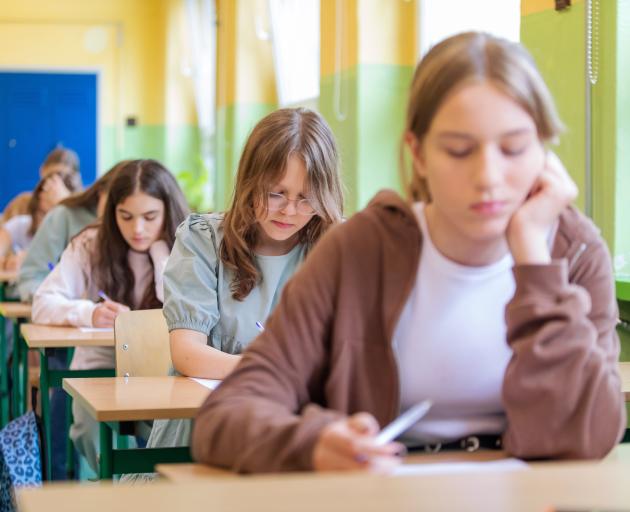
We want our children learning at internationally competitive levels so they will be able to take their knowledge and skills wherever they want to go.
This includes some extra local learning, related to our unique situation in the relationship between the Crown and Maori.
Yet this one job looks like it is struggling to achieve even the most basic of passing grades.

We are disappearing on tangents that have little to no evidence of improving educational outcomes.
Somehow we seem to be muddling our educational aims by wrapping in general thoughts on reducing poverty.
Government has then added in a very expensive funding approach by deciding that if some children come from families who genuinely can’t afford something these children would feel better about themselves if all children were funded.
For example, the government and the opposition have been trading accusations around funding of free school lunches.
These were introduced by the Labour government in 2019 with then prime minister Jacinda Ardern saying "you simply can’t learn distracted by an empty stomach".
In July last year the Treasury reported that while the programme contributed to happier healthier pupils there had been little improvement on attendance and little benefit to Māori pupils.
It recommended prioritising things that directly support achievement, like reading and maths programmes.
In broad terms the free school lunch programme costs around $350 million per year, or around $1400 per pupil for the schools involved.
It currently covers over 1000 schools, which are taken from the schools with highest "deprivation index" measures.
Now in opposition this last government is expressing major concerns about the idea of reducing or scrapping the free school lunch programme on the basis that it has mental health benefits. And that it supports local employment.
There is also a concern that reducing the cost by offering targeted lunches would make some pupils feel judged for being unable to come with their own lunch.
There is also a proposal for stopping free bus fares for school-aged children, and there is upset around that as well, the belief pupils will have increased anxiety if they are expected to come to school without a free bus service.
Currently, the government is strapped for cash. Taxpayers are also struggling.
Inflation is seeing wages fall behind the cost of living.
It is important that the government spends our money wisely and that it has a focus on achieving outcomes we have said we want.
Better educational achievement is one of these outcomes.
One way forward would be to see if there is a way to raise educational standards by providing funding for measures we are more certain would achieve the goal.
More funding to help decrease truancy would help. The education system could make a serious dent in truancy if it had $350 million to spend.
For those who want to focus on food we could ask schools whether they want to provide school lunches as many schools do in the United Kingdom.
Those who could pay would be expected to pay. Those who applied for a free lunch on the basis of hardship would know that their children would be receiving the same lunch.
The government could fund some of the free lunches for reasons of reducing poverty.
But short of a major contribution to educational outcomes this funding belongs in the welfare budget, not as part of the main job of schools.
A major problem for learning outcomes has surfaced recently regarding the teaching of history.
Teachers are saying they have insufficient resources and are unsure of what is wanted. Even those in favour of the new curriculum can only offer as a positive that it engages pupils.
For children to learn history at world-class standards the curriculum needs to be broad and global.
Teachers need whatever resources are required to make them competent and successful.
The add-on of local history needs to be fully resourced. All New Zealand children deserve to be taught by teachers who are confident in their subject matter.
It is not enough for some of the curriculum areas to work towards goals of engaging children.
The children need to actually be learning what we want them to learn.
It helps if parents are being kept informed of how their children are doing .
That way they can help keep accountable the parts of the system which are failing if the children are not learning what they should.
If schools need more resourcing, parents would then understand and help lobby government.
Children and their successes deserve to be the focus of schools, not a byproduct of an expensive attempt to address poverty.
A world-class education system should be achievable by a country such as New Zealand.
— Hilary Calvert is a former Otago regional councillor, MP and Dunedin city councillor.











